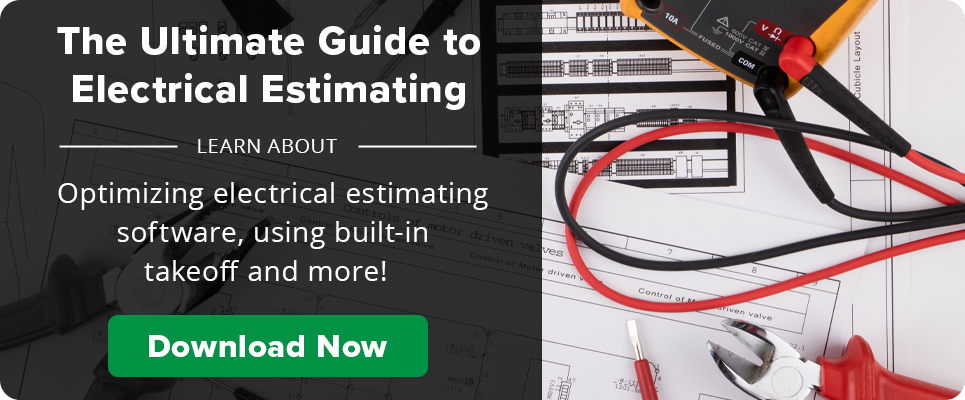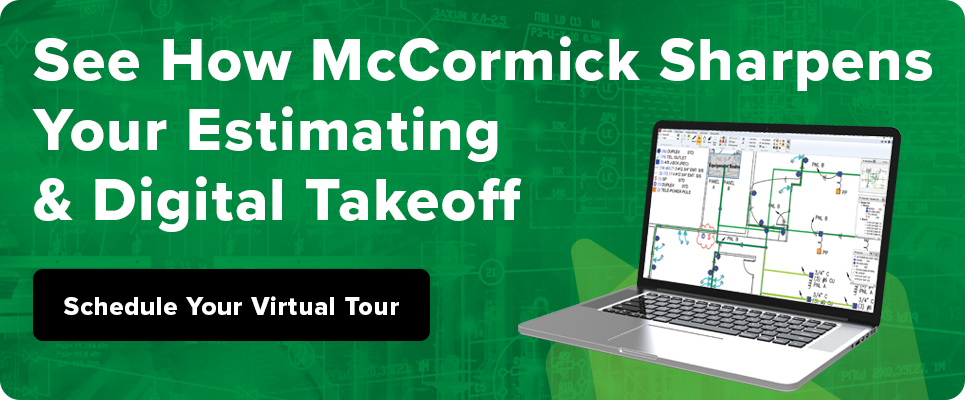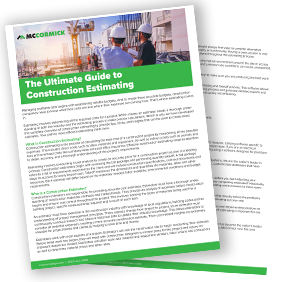Electric Vehicle Charging Stations – An Overview

by Paul Wheaton
June 7, 2023
What is the Made-in-America National Network of Electric Vehicle Chargers?
The Biden Administration’s Infrastructure Investment and Jobs Act includes a $7.5 billion budget to begin building a nationwide network of 500,000 publicly accessible and American-made electric vehicle charging stations by 2030. The law will also invest $10 billion in clean transportation and over $7 billion in electric vehicle battery components and critical minerals and materials.[1] With this new act in place, Americans can expect to see half a million chargers pop up at non-interstate rest stops, gas stations, and shopping centers within the next seven years.
The Department of Transportation recently launched the National Electric Vehicle Infrastructure Program (NEVI) to support Biden’s Infrastructure Act. NEVI is a $5 billion initiative to build a coast-to-coast network of electric vehicle chargers. These chargers will be strategically placed along the major highways in America that support the majority of long-distance road trips.[2]
If this is the first you’re hearing of the Made-in-America National Network of Electric Vehicle Chargers, here are some key points to get you up to speed:
- The $7.5 billion budget will be funded through a combination of public and private funds. The money will come from government grants, automaker investments, and utility contributions.[3]
- As the name implies, the chargers will be built using American-made products and materials. Lawmakers hope this will help stimulate the American economy, support American jobs, and reduce America’s reliance on importing foreign supplies.
- The chargers will be compatible with all makes and models of electric and hybrid vehicles and will be powered using either wind or solar energy.
- This initiative will impact every state across the country, including Hawaii and Alaska, plus D.C. and Puerto Rico.[4]
With so much funding being poured into the charging station network, electrical contractors should look into taking advantage of these federal projects in the future. Read on to learn more about what these new programs mean for the construction industry and how you can optimize your chances of winning these jobs.
[Check out our article The Importance of SaaS For Electrical Contractors to learn more about how cloud-based software can help electrical contractors.}What Impact Will the Made-in-America National Network of Electric Vehicle Chargers Have on the Electric Industry?
The Made-in-America National Network of Electric Vehicle Chargers is anticipated to create more jobs for the American people—especially those working in the electric field. If you own or work for an electric company, you’ll have the option to bid on an electric vehicle charging station job sometime within the next ten years!
Who Will be Needed for EV Charging Station Jobs?
The new Made-in-America National Network of Electric Vehicle Chargers will create jobs for a variety of electrical contractors, including:
- Installation Technicians: These professionals would be responsible for installing EV chargers. They will complete a variety of tasks, including electrical wiring, mounting equipment, and ensuring the functionality of the chargers.
- Maintenance and Repair Specialists: It is a requirement that chargers have 97% uptime reliability.[5] In order to keep chargers up and running, maintenance specialists will need to run routine tests and updates on the chargers. Since chargers are also required to support drivers’ needs in the future, these electric professionals will conduct updates on the chargers as technology advances.[6]
- Electrical Engineers: Electrical engineers will be critical in designing and overseeing the implementation of the charging network. These individuals will be responsible for analyzing power requirements, ensuring safety compliance, and optimizing the efficiency of the charging infrastructure.
What Are the Requirements for Working EV Charging Station Jobs?
Specific requirements for completing electric vehicle charging station jobs will vary by state. For more information on state-specific requirements, visit www.afdc.energy.gov/laws.
It’s important that contractors familiarize themselves with their state’s requirements, as some states, such as California, require that at least one electrician on each installation team holds an Electric Vehicle Infrastructure Training Program Certification.[7] This means that some contractors who are interested in electric vehicle charging station jobs may need to acquire additional training or certifications.
Outside of state-specific training, general prerequisites may include:
- Education and Training: A background in electrical engineering, electrical technology or a related field is essential for working on electric vehicle charging stations.[8]
- Technical Skills: Proficiency in electrical wiring and circuitry is essential for installation technicians and maintenance specialists. Electrical engineers should possess strong analytical and design capabilities.[9]
- Safety Knowledge and Training: Given the potentially hazardous nature of electrical work, an understanding of safety protocols and industry regulations is crucial to minimize risks.[10]
Are There Specific Dates When EV Charging Station Jobs Can Be Bid On?
Jobs created through the National Network of Electric Vehicle Chargers are being bid on right now. Jobs will continue to roll out as the network progresses.
Specific dates for bidding on these jobs will vary depending on the project timelines and individual contracts. Electrical contractors should stay updated with local and national announcements regarding the rollout of the Made-in-America National Network of Electric Vehicle Chargers to identify when bidding opportunities become available.
What Will the Bidding Process for EV Charging Station Jobs Look Like?
The bidding process for electrical jobs related to the National Network of Electric Vehicle Charging Stations will likely follow the same steps as other government-funded construction projects:
- Request for Proposal (RFP): The project owner will begin by releasing an RFP detailing the project’s scope, requirements, and submission guidelines.
- Pre-Bid Conference: In some cases, contractors may have the opportunity to attend a pre-bid conference, where they can gather additional information and ask questions regarding the project.
- Bid Submission: Contractors should prepare and submit their bids according to the instructions provided in the RFP. Bids typically include cost estimates, proposed timelines, qualifications, and references.
- Create an Outline: Plan your bid strategically. An outline will help ensure your proposal remains on target with anticipated contract goals. An outline can also help to reduce the risk of omitting imperative information by mistake.
- Write Your Proposal: In your proposal, you must clearly define how you will fulfill the goals of the contract. It is best practice to highlight your crew’s strengths and clarify why your solution is the most efficient and cost-effective option.
- Price Competitively: It is often a requirement that federal contracts are awarded to the contractor who can complete the project for the lowest price while fulfilling all legal requirements and not sacrificing quality. Use relevant market research to ensure you are pricing the project competitively.
- Submit Your Proposal… and Wait: Submit your proposal to the appropriate location and get ready to wait for a reply. Depending on the scope of the project, contractors can typically expect to wait anywhere from 30-120 days for a reply from a federal agency.[11]
- Evaluation and Award: After the project owner evaluates the submitted bids, the contract will be awarded to the bidder who best meets the project requirements. Project requirements can be based on various criteria, such as cost, experience, and technical expertise.[12]
Why Would I Want to Work EV Charging Station Jobs?
Getting involved with the Made-in-America National Network of Electric Vehicle Chargers as soon as you are able can offer both short-term and long-term benefits:
Short term:
- Job Opportunities: The development of the charging infrastructure has already begun to create a surge in demand for electrical professionals. Getting your foot in the door now will help you to take advantage of these opportunities before the market becomes oversaturated.
- Industry Growth: The electric vehicle market is experiencing rapid expansion as more consumers opt for electric vehicles. Contractors who choose to work on EV charging stations will be at the forefront of a growing industry, gaining valuable experience and expertise in a promising sector.
- Skill Development: Learning how to install electric vehicle charging stations—and gaining experience doing so—will enhance your skills and expand your knowledge of these new, cutting-edge technologies. This can lead to professional growth and increased marketability in the rapidly growing electrical industry.
Long term:
- Job Stability: By learning how to install electric vehicle charging stations and building a track record of success in the field, contractors can position themselves to become leaders in the electric vehicle charging station sector. This will help electrical contractors to garner steady employment over the next ten years.
- Technological Advancement: Electric vehicle charging technology is continually evolving, presenting opportunities for ongoing learning and innovation. By working on these jobs, you can stay on top of the latest advancements in electric vehicle charging systems, positioning yourself as a valuable asset in an ever-evolving field.
- Career Diversification: The skills acquired through working on the EV charging network can help to diversify your skill sets, positioning you to acquire new jobs as technology continues to advance.
How Can I Prepare to Work EV Charging Station Jobs?
Contractors looking to increase their chances of working on electrical jobs within the Made-in-America National Network of Electric Vehicle Chargers can take the following steps:
- Stay Informed: Check updates and announcements from government agencies, industry associations, and local authorities to stay informed about upcoming projects and bidding opportunities.
- Enhance Skills and Knowledge: Consider investing in training programs or certifications that specialize in electric vehicle charging infrastructure, electrical installation, and maintenance. This will equip you with the necessary skills and demonstrate your commitment to the field.
- Pro Tip: Begin researching what training or certification your state requires to install electric vehicle charging stations and go from there.
- Build Industry Connections: Network with other local electrical professionals to help stay “in the know” about potential job openings, partnerships, and subcontracting opportunities. Attend industry events, conferences, and trade shows to expand your professional network.
- Familiarize Yourself with Regulations: Stay updated on regulations, codes, and standards related to electric vehicle charging infrastructure.
How Can Electrical Estimating Software Help Win EV Charging Station Jobs?
Electric-powered vehicles are estimated to make up at least 50% of new car sales by 2030.[13] As more electric cars hit the road, digital estimating and takeoff software can help contractors bid on electric vehicle charging station projects with ease.
Contractors can use electrical estimating software to give themselves an edge over their competition in the bidding stage. Electrical estimating software can:
- Ensure Accuracy: Estimating software removes the potential for human error, ensuring you’re always submitting an accurate proposal.
- Save Time: Some estimating software comes with features like preloaded databases that feature labor units, items, and assemblies. These items can help contractors to save time while building the estimate.
- Save Money: Since estimating software helps contractors to complete estimates faster, you can expect your team to spend less time in the office crunching numbers and more time in the field. Optimizing your crew’s work hours will ultimately help save you money.
McCormick Systems provides contractors with all these features and more. McCormick offers the electrical estimating software contractors need to create the fastest, most efficient electrical bids in the market.
The new Made-in-America National Network of Electric Vehicle Chargers is a step towards a greener, more sustainable future for the United States. As electric vehicles and charging stations become more accessible, our reliance on fossil fuels will be reduced. This endeavor will make it more feasible for individuals who drive electric and hybrid vehicles to travel longer distances across the United States.
Electrical contractors can begin taking steps today to ensure they can take part in these exciting and new technological developments.
For more information on how our electrical estimating software can help you with these profitable opportunities, click here!
[1] https://www.whitehouse.gov/briefing-room/statements-releases/2023/02/15/fact-sheet-biden-harris-administration-announces-new-standards-and-major-progress-for-a-made-in-america-national-network-of-electric-vehicle-chargers/
[3] https://highways.dot.gov/newsroom/biden-harris-administration-opens-applications-first-round-25-billion-program-build-ev
[4] https://www.transportation.gov/briefing-room/historic-step-all-fifty-states-plus-dc-and-puerto-rico-greenlit-move-ev-charging
[5] https://www.whitehouse.gov/briefing-room/statements-releases/2023/02/15/fact-sheet-biden-harris-administration-announces-new-standards-and-major-progress-for-a-made-in-america-national-network-of-electric-vehicle-chargers/
[6] Ibid.
[7] https://afdc.energy.gov/laws/12726#:~:text=At%20least%20one%20electrician%20on,safe%20EV%20charging%20station%20installation.
[8] https://www.bls.gov/ooh/architecture-and-engineering/electrical-and-electronics-engineers.htm#tab-4
[9] Ibid.
[10] Ibid.
[11] https://potomacofficersclub.com/articles/how-to-win-a-government-contract-bid-in-10-steps/
[13] https://www.bls.gov/opub/btn/volume-12/charging-into-the-future-the-transition-to-electric-vehicles.htm#:~:text=S%26P%20Global%20Mobility%20forecasts%20electric,surpassing%2050%20percent%20by%202030.
Share Article




